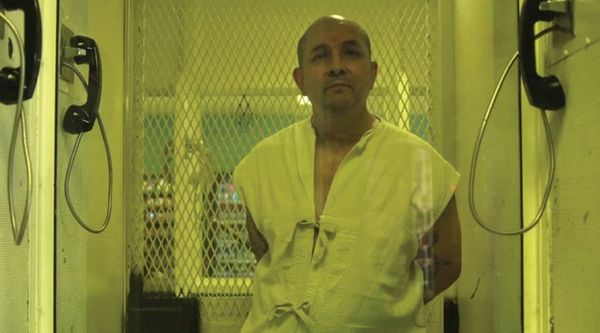Eye For Film >> Movies >> The Years Of Fierro (2013) Film Review
The Years Of Fierro
Reviewed by: Michael Pattison

It’s an unfortunate sign of a diseased legal system — perhaps of a diseased society in general — that miscarriage of justice documentaries are so prevalent today. Then again, that so many people continue to make them should give any cynic pause for thought: the underlying hope in each instance, you feel, is that the film is able to bring about change — if not a complete reversal of the sentence, as was the case with Errol Morris’ The Thin Blue Line (1988), then by at least exposing the case to a wider audience and by summoning up support to help its cause.
A genre as overdone and popular as this is bound to drag along its many examples of mediocrity — which makes the few masterpieces of the genre, such as The Central Park Five (2012), all the more precious. However, it does seem to be a comparatively fail-safe format, with a higher than average hit-to-miss ratio. Perhaps there’s something about the fundamental elements — the crime, the investigation, the sentencing, the corrupt cops and the idiot judge and the parasitic media — that allow for even the most basic contributions to the genre to be profitably by-the-book. This is telling of just how identical such cases of incompetence and corruption are. Indeed, if sometimes such documentaries feel like only one of many, so too are the cases themselves.

Case in point: The Years Of Fierro, Santiago Esteinou’s second documentary following Chronic Pain (2008), which tells the story of César Roberto Fierro Reyna, a Mexican who in 1980 was sentenced to death in Texas for the murder of Nicolas Castañon, an El Paso cab driver. Fierro was sentenced six months after a coerced confession. He has been on death row ever since, despite acknowledgements from numerous courts that his confession was unlawfully coerced and despite trial prosecutor Gary Weiser admitting to a wrongful conviction.
Esteinou’s film, piecing together lengthy interviews with the prisoner as well as with his younger brother Sergio, threatens to miss the point entirely early on. Focusing on the relationship between the two brothers — who haven’t seen each other in three decades — the film tells how Sergio was responsible for introducing his brother to Gerardo Olague, a psychologically unstable thief who fingered him for the murder in question. Details on the actual prosecution case and trial are kept to a minimum. This is to be a film about two brothers torn apart and largely incommunicado in the protractedly miserable detritus of a terrible but irredeemable tragedy.
Just when one begins to wonder if the entire film might concern such personal consequences, it kicks into action. In retrospect, one realises that rather than present the more emotive reasons for Ferrio’s pardon and release after all of the legal-cum-moral stuff, Esteinou has decided to foreground his death row prisoner as a starting point. It means that when the film does get down to the nitty-gritty — those aforementioned genre components such as the detestably sleazy cop (Jorge Palacios) and the infuriatingly faceless (Texas) court system — we know what’s truly at stake.
Assisted by some wonderfully crisp cinematography from María Secco and Axel Pedraza, Esteinou does well to give a clear and succinct overview of the case at hand, from the blackmail with which US and Mexican police held Fierro’s mother in custody so as to force a confession from their suspect to his many deferred execution dates and beyond. That said, contradictions persist: while at 98 minutes The Years Of Fierro is a marketable and digestible entry into the miscarriage of justice genre, alongside recent and lengthier comparators such as West Of Memphis (2012), the film feels a tad non-committal. If there is more to say on the matter — and after 30 years, there surely must be — then the filmmakers could have perhaps given themselves more screen time in which to do so. Fierro’s case certainly demands it. As a matter of urgency, then, file under “follow-ups required”. Let’s in the meantime hope there’s no need for one — and that the reason for that isn’t because Fierro has been executed.
Reviewed on: 24 Mar 2014















